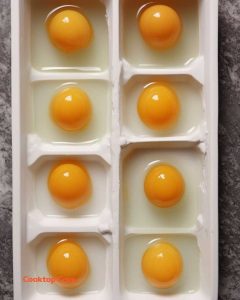
Extend the Shelf Life of Eggs by Freezing Them: Here’s How
Cooking Tips to Share with Others
The nutritional value and versatility of eggs make them a staple in many households. While it’s common to buy eggs by the dozen, have you ever considered purchasing them in bulk and freezing them for future use? This clever hack can save you money, increase convenience, and prolong the shelf life of this essential ingredient.
In this article, we’ll explore the advantages and disadvantages of buying eggs in bulk and freezing them for later use.
Why Buy Eggs in Bulk?
Cost Savings
One of the main reasons to purchase eggs in bulk is to save money. Eggs are typically cheaper per unit when bought in larger quantities. If eggs are a regular part of your diet or if you use them frequently in cooking, this can be a significant benefit. Buying in bulk and freezing eggs can lead to long-term savings.
Convenience
By purchasing and freezing eggs in bulk, you can ensure you always have eggs on hand. This can be a lifesaver for last-minute meals or unexpected guests. It also reduces the need for frequent trips to the store.
Increased Shelf Life
Contrary to popular belief, eggs can be frozen. Refrigerated eggs only last about three to five weeks. However, when properly frozen, they can retain their quality for at least six months, if not longer. This helps reduce food waste and ensures you always have fresh eggs available.
How to Freeze Eggs
Follow these steps to freeze eggs effectively:
Crack each egg into an ice cube tray mold, ensuring one egg fits per slot.
Place the tray in the freezer and allow the eggs to freeze completely.
Once frozen, transfer the egg cubes to a freezer-safe container or bag.
Label the container with the date for future reference.
How to Use Frozen Eggs
Thaw the eggs before using them by one of the following methods:
Room Temperature: Place the egg cubes in a bowl and let them thaw at room temperature.
Refrigerator: Allow the frozen egg cubes to thaw in the fridge for at least 12 hours, preferably overnight.
Cold Water: Place the frozen egg cubes in a sealed plastic bag and submerge in cold water. Change the water every half hour until thawed, usually within a couple of hours.
Please Head On keep on Reading (>)
